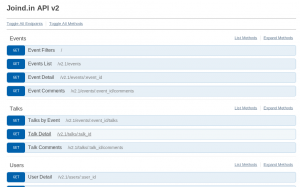Basically, we need to get some great submissions, so that when we come to choose the schedule (and it is only one track, one day, there’s only a few slots available), we can put together something really fitting to showcase PHP for a wider audience than a PHP conference. Selection will be done on the basis of talk topic, abstract and length in the first instance – we’ll only take into account the actual speakers when we’re curating the final list.
Key things you need to know:
- link to call for papers form (google forms)
- Event is 2nd (and 3rd, but the PHP room is on the 2nd) of February 2013, at ULB campus Solbosh in Brussels, Belgium
- No expenses will be covered by the event
- There’s also a Call for Stands if you have a project that you would like to represent there
- If you’re not speaking, come and join us anyway!

